June 14 stands as one of history’s most eventful days, witnessing the rise and fall of empires, groundbreaking discoveries, and moments that shaped our modern world across centuries of human achievement.

Politics and Government Events on June 14
1907 – Norwegian Women Gain Parliamentary Voting Rights
The National Association for Women’s Suffrage achieved a historic victory by securing Norwegian women the right to vote in parliamentary elections. This milestone established Norway as a progressive leader in women’s political participation.
The victory came after years of organized advocacy and strategic political maneuvering. Norway’s decision influenced similar movements across Europe and demonstrated the growing power of organized suffrage campaigns.
1940 – German Forces Occupy Paris
German military forces entered Paris, marking one of the most significant moments of World War II. The occupation transformed the City of Light into the administrative center of Nazi-controlled France.
French resistance movements began forming immediately in response to the occupation. The fall of Paris sent shockwaves throughout the Allied nations and marked a turning point in the European theater.
1985 – Schengen Agreement Signed
Five European Economic Community member nations signed the groundbreaking Schengen Agreement establishing a free travel zone. The agreement eliminated border controls between participating countries and revolutionized European mobility.
The accord laid the foundation for modern European integration and the European Union’s freedom of movement policies. Today’s passport-free travel across much of Europe traces its origins to this pivotal moment.
2017 – Congressional Baseball Shooting

Republican House Majority Whip Steve Scalise and three others were shot during practice for the annual Congressional Baseball Game. The attack shocked the nation and highlighted growing political tensions in American society.
The incident prompted renewed calls for political unity and civility in American discourse. Scalise’s recovery became a symbol of resilience while the event underscored security concerns for elected officials.
1954 – “Under God” Added to Pledge of Allegiance
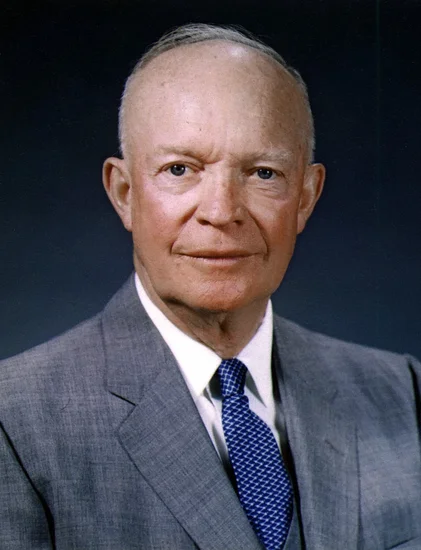
President Dwight D. Eisenhower signed legislation adding “under God” to the United States Pledge of Allegiance. The modification reflected Cold War-era efforts to distinguish American values from atheistic communism.
The change sparked decades of constitutional debate about the separation of church and state. Legal challenges continue to this day, making this seemingly simple addition a lasting source of American political controversy.
1940 – Soviet Ultimatum to Lithuania
The Soviet Union presented Lithuania with an ultimatum that resulted in the loss of Lithuanian independence. This aggressive move marked the beginning of Soviet domination over the Baltic states.
The ultimatum demanded the formation of a new government and the admission of unlimited Soviet troops. Lithuania’s capitulation demonstrated Stalin’s expanding influence in Eastern Europe during the early war years.
1926 – Brazil Leaves League of Nations
Brazil withdrew from the League of Nations following disputes over permanent Security Council membership and international representation. The departure reflected growing tensions between major powers and smaller nations within the organization.
Brazil’s withdrawal highlighted the League’s structural weaknesses and foreshadowed its eventual collapse. The decision demonstrated how international organizations struggled to balance the interests of diverse member states.
1937 – Pennsylvania Celebrates Flag Day
Pennsylvania became the first and only U.S. state to officially celebrate Flag Day as a state holiday. The designation reflected the state’s historical significance in American independence and patriotic traditions.
The holiday honored the adoption of the American flag and strengthened Pennsylvania’s identity as a keeper of American traditions. The state’s unique observance continues to distinguish it from other states today.
Military and Naval History on June 14
1940 – First Auschwitz Prisoners Arrive
Seven hundred and twenty-eight Polish political prisoners from Tarnów became the first inmates of the Auschwitz concentration camp. This grim milestone marked the beginning of one of history’s most notorious sites of genocide.
The arrival of these prisoners established the operational framework for the camp’s expansion. Auschwitz would later become the largest Nazi extermination camp, symbolizing the Holocaust’s systematic brutality.
1944 – British Abandon Operation Perch
The British Army abandoned Operation Perch after several failed attempts to capture the German-occupied town of Caen. The operation’s failure demonstrated the strength of German defensive positions in Normandy.
The setback forced Allied commanders to revise their post-D-Day strategy and highlighted the challenges of the Norman campaign. Caen’s eventual capture would require different tactics and additional resources.
1941 – Baltic States Mass Deportations Begin
The first major wave of Soviet mass deportations of Estonians, Latvians, and Lithuanians from the occupied Baltic states commenced. Thousands of families were forcibly relocated to remote areas of the Soviet Union.
The deportations targeted intellectuals, business leaders, and anyone considered a threat to Soviet rule. This brutal campaign permanently altered the demographic and cultural landscape of the Baltic nations.
1982 – Argentine Forces Surrender in Falklands
Argentine forces in Stanley conditionally surrendered to British forces, ending the Falklands War. The surrender marked Britain’s victory in the South Atlantic conflict and restored British control over the islands.
The war’s conclusion boosted Prime Minister Margaret Thatcher’s popularity and demonstrated Britain’s continued military capabilities. The conflict reshaped South American and European diplomatic relationships for decades.
1945 – Filipino Troops Liberate Ilocos Sur
Filipino troops of the Philippine Commonwealth Army liberated captured territories in Ilocos Sur and initiated the Battle of Bessang Pass. The offensive marked a crucial phase in the Philippines’ liberation from Japanese occupation.
The battle demonstrated Filipino forces’ growing effectiveness and their crucial role in the Pacific War’s final stages. The liberation of Ilocos Sur brought Filipino troops closer to complete victory over Japanese forces.
2014 – Ukrainian Military Aircraft Shot Down

A Ukrainian military Ilyushin Il-76 airlifter was shot down, killing all 49 people on board. The attack occurred during the ongoing conflict in eastern Ukraine and represented one of the deadliest single incidents.
The downing escalated tensions between Ukrainian forces and pro-Russian separatists. The incident highlighted the conflict’s intensity and the dangerous environment facing military personnel in the region.
Science and Discovery Milestones on June 14
1949 – First Mammal in Space
Albert II, a rhesus monkey, rode a V-2 rocket to an altitude of 134 kilometers, becoming the first mammal in space. This groundbreaking achievement marked a crucial milestone in space exploration and biological research.
The successful flight demonstrated that mammals could survive the journey to space and return safely. Albert II’s mission provided essential data for future human spaceflight programs and advanced our understanding of space travel’s biological effects.
1962 – European Space Research Organisation Established

The European Space Research Organisation was established in Paris, later becoming the European Space Agency. The organization unified European efforts in space exploration and scientific research.
The formation created a European counterpart to NASA and fostered international cooperation in space science. Today’s European Space Agency continues this mission, conducting cutting-edge research and space exploration projects.
1967 – Mariner 5 Launched to Venus
Mariner 5 launched toward Venus as part of NASA’s ambitious planetary exploration program. The spacecraft carried sophisticated instruments to study Venus’s atmosphere and surface conditions.
The mission provided crucial data about Venus’s hostile environment and extreme greenhouse effect. Mariner 5’s findings revolutionized our understanding of planetary atmospheres and climate systems.
1951 – UNIVAC I Dedicated
The U.S. Census Bureau dedicated UNIVAC I, one of the first commercial computers in American history. The massive machine represented a revolutionary leap in data processing and computational capabilities.
UNIVAC I’s dedication marked the beginning of the computer age in government and business applications. The machine’s success demonstrated computers’ potential for complex calculations and data management tasks.
2002 – Near-Earth Asteroid Narrowly Misses Earth

Near-Earth asteroid 2002 MN missed Earth by just 75,000 miles, approximately one-third of the distance to the Moon. The close approach highlighted the ongoing threat of asteroid impacts and the importance of space monitoring.
The near-miss demonstrated the need for improved asteroid detection and tracking systems. Scientists used the event to refine their understanding of potentially hazardous space objects and planetary defense strategies.
Cultural and Arts Events on June 14
1959 – Disneyland Monorail Opens

The Disneyland Monorail System opened to the public in Anaheim, California, becoming the first daily operating monorail in the Western Hemisphere. The futuristic transportation system embodied Walt Disney’s vision of tomorrow’s technology.
The monorail represented Disney’s commitment to innovation and helped establish Disneyland as a showcase for advanced transportation concepts. The system inspired monorail development worldwide and remains a beloved attraction today.
1966 – Vatican Abolishes Index of Prohibited Books
The Vatican announced the abolition of the Index Librorum Prohibitorum, the Catholic Church’s list of prohibited books established in 1557. The decision marked a significant shift in the Church’s approach to intellectual freedom and censorship.
The abolition reflected the Second Vatican Council’s modernizing influence and the Church’s evolving relationship with secular knowledge. The change opened new possibilities for Catholic scholars and intellectuals worldwide.
1955 – Chile Signs Buenos Aires Copyright Treaty
Chile became a signatory to the Buenos Aires copyright treaty, strengthening international intellectual property protections. The agreement enhanced copyright enforcement across Latin American nations and promoted artistic collaboration.
The treaty’s adoption reflected Chile’s commitment to protecting creative works and fostering international cultural exchange. The agreement helped establish modern copyright frameworks that continue to protect artists and writers today.
2017 – Grenfell Tower Fire Tragedy

A catastrophic fire engulfed Grenfell Tower, a high-rise apartment building in North Kensington, London, killing 72 people and injuring 74 others. The tragedy exposed serious flaws in building safety regulations and social housing policies.
The fire sparked nationwide outrage and led to comprehensive reviews of building codes and safety standards. The tragedy became a symbol of social inequality and government neglect of public housing residents.
Religious and Social Events on June 14
1928 – Emmeline Pankhurst Dies

Emmeline Pankhurst, the legendary British suffragette leader, died after decades of fighting for women’s voting rights. Her death marked the end of an era in the women’s suffrage movement and feminist activism.
Pankhurst’s militant tactics and unwavering dedication had revolutionized the fight for women’s political equality. Her legacy inspired generations of activists and helped secure fundamental democratic rights for women worldwide.
1920 – Max Weber Dies
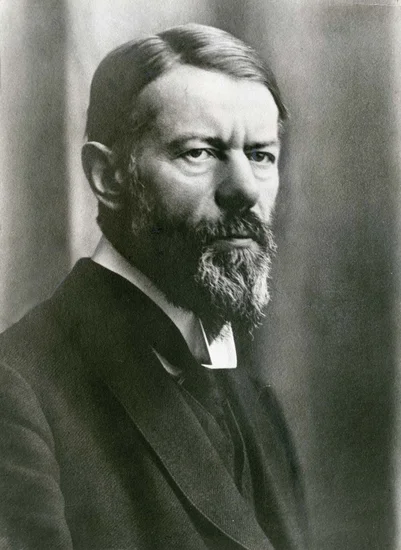
Max Weber, the influential German sociologist and economist, died after making fundamental contributions to social science. His theories on bureaucracy, capitalism, and social action continue to shape academic discourse today.
Weber’s work established sociology as a rigorous academic discipline and provided frameworks for understanding modern society. His analysis of bureaucracy and rationalization remains essential to understanding contemporary institutions.
1936 – G.K. Chesterton Dies

G.K. Chesterton, the celebrated English writer and philosopher, died after a prolific career spanning literature, journalism, and theology. His wit and paradoxical thinking influenced countless writers and thinkers.
Chesterton’s detective fiction featuring Father Brown became classics of the mystery genre. His Christian apologetics and social commentary continue to resonate with readers seeking thoughtful perspectives on faith and society.
Business and Economic Events on June 14
1937 – Marihuana Tax Act Passes House
The U.S. House of Representatives passed the Marihuana Tax Act, effectively criminalizing cannabis throughout the United States. The legislation marked the beginning of federal prohibition of marijuana and established precedents for drug policy.
The act imposed heavy taxes and regulations on cannabis, making legal possession virtually impossible. The legislation reflected growing concerns about drug use and established the framework for America’s decades-long war on drugs.
1994 – Stanley Cup Riot in Vancouver
Riots erupted in Vancouver after the New York Rangers defeated the Vancouver Canucks to win the Stanley Cup. The violence caused an estimated C$1.1 million in damages and led to 200 arrests.
The riot highlighted the intense passion of hockey fans and the challenges of managing large crowds during major sporting events. The incident prompted reviews of crowd control strategies and emergency response procedures.
1972 – Japan Airlines Flight 471 Crashes

Japan Air Lines Flight 471 crashed on approach to New Delhi’s Palam International Airport, killing 82 of 87 people aboard and four on the ground. The tragedy prompted reviews of aviation safety protocols and airport approach procedures.
The crash investigation led to improvements in pilot training and airport safety systems. The incident highlighted the importance of international cooperation in aviation safety and accident prevention.
Transportation and Infrastructure on June 14
1919 – First Nonstop Transatlantic Flight Begins
John Alcock and Arthur Whitten Brown departed from St. John’s, Newfoundland, on the first nonstop transatlantic flight. Their daring journey would revolutionize aviation and demonstrate the possibility of long-distance air travel.
The flight represented a quantum leap in aviation technology and human courage. Their successful crossing proved that oceans were no longer insurmountable barriers and opened the age of international commercial aviation.
1950 – Air France Double Crash Near Bahrain

An Air France Douglas DC-4 crashed near Bahrain International Airport, killing 40 people, just two days after another Air France DC-4 crashed at the same location. The unusual coincidence raised serious questions about airport safety and aircraft maintenance.
The double tragedy prompted comprehensive investigations into aviation safety procedures and airport operations. The incidents led to improved safety protocols and highlighted the importance of thorough accident investigation procedures.
1986 – Mindbender Derailment at West Edmonton Mall

The Mindbender roller coaster derailed at West Edmonton Mall’s Fantasyland amusement park, killing three riders and severely injuring one. The accident shocked the amusement park industry and led to stricter safety regulations.
The tragedy prompted comprehensive reviews of amusement park safety standards and inspection procedures. The incident highlighted the importance of regular maintenance and safety oversight in recreational facilities.
Sports and Recreation on June 14
1976 – Steffi Graf Born

German tennis legend Steffi Graf was born, destined to become one of the greatest players in tennis history. Her powerful forehand and competitive spirit would dominate women’s tennis for over a decade.
Graf’s career included 22 Grand Slam singles titles and the Golden Slam in 1988. Her rivalry with other tennis greats elevated the sport’s profile and inspired generations of young players worldwide.
1961 – Boy George Born

English singer-songwriter Boy George was born, later becoming the flamboyant frontman of Culture Club. His distinctive voice and androgynous style would challenge gender norms and revolutionize pop music.
Boy George’s success in the 1980s helped define the New Wave movement and brought gender-bending fashion to mainstream audiences. His influence extended beyond music into fashion, activism, and cultural commentary.
1982 – Lang Lang Born

Chinese pianist Lang Lang was born, destined to become one of the world’s most celebrated classical musicians. His virtuosic technique and charismatic stage presence would bring classical music to new audiences globally.
Lang Lang’s international success helped bridge cultural gaps and demonstrated the universal appeal of classical music. His educational initiatives and performances continue to inspire young musicians worldwide.
1946 – Donald Trump Born

Donald Trump was born in New York, later becoming a prominent businessman, television personality, and the 45th President of the United States. His career spanned real estate, entertainment, and politics.
Trump’s presidency from 2017 to 2021 marked a controversial period in American politics. His unconventional leadership style and policies generated intense debate and reshaped American political discourse.
Notable Births on June 14
1928 – Ernesto “Che” Guevara Born

Argentinian-Cuban revolutionary Che Guevara was born, destined to become one of the most iconic figures of 20th-century Latin American politics. His role in the Cuban Revolution would make him a symbol of anti-imperialism worldwide.
Guevara’s guerrilla warfare tactics and Marxist ideology influenced revolutionary movements across Latin America and beyond. His image became a global symbol of rebellion and social justice, transcending political boundaries.
1904 – Margaret Bourke-White Born

American photographer Margaret Bourke-White was born, later becoming one of the most influential photojournalists of the 20th century. Her pioneering work broke gender barriers in journalism and war correspondence.
Bourke-White’s powerful images documented the Great Depression, World War II, and the partition of India. Her fearless approach to dangerous assignments established new standards for photojournalism and inspired countless female photographers.
1903 – Alonzo Church Born
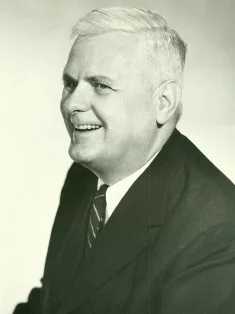
American mathematician Alonzo Church was born, later making fundamental contributions to mathematical logic and computer science. His work laid the theoretical foundation for modern computing and artificial intelligence.
Church’s lambda calculus and his proof of the undecidability problem became cornerstones of theoretical computer science. His students, including Alan Turing, continued his work and helped develop the modern computer age.
1926 – Don Newcombe Born

American baseball player Don Newcombe was born, later becoming one of the first African American star pitchers in Major League Baseball. His success helped break down racial barriers in professional sports.
Newcombe’s achievements included being the first player to win the Rookie of the Year, MVP, and Cy Young awards. His career with the Brooklyn Dodgers coincided with baseball’s integration and the civil rights movement.
1907 – René Char Born
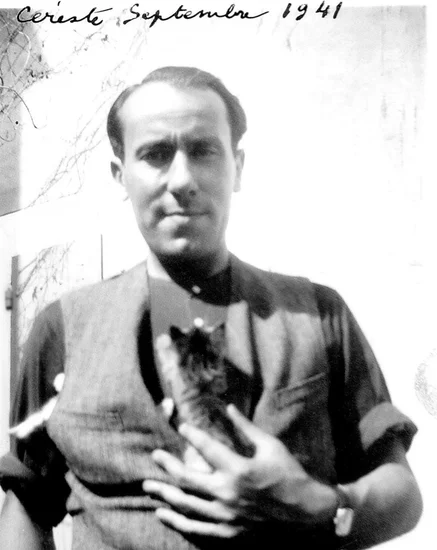
French poet René Char was born, later becoming one of the most important voices in 20th-century French literature. His poetry combined surrealist techniques with profound philosophical insights about human existence.
Char’s involvement in the French Resistance during World War II deeply influenced his writing. His poetry explored themes of freedom, resistance, and the human condition with remarkable depth and linguistic innovation.
1919 – Sam Wanamaker Born

American actor and director Sam Wanamaker was born, later becoming instrumental in reconstructing Shakespeare’s Globe Theatre in London. His passion for theater and Shakespeare’s works drove decades of dedicated effort.
Wanamaker’s vision for the Globe Theatre created an authentic Elizabethan theater experience for modern audiences. His project became a testament to the enduring power of Shakespeare and the importance of cultural preservation.
1924 – James Black Born
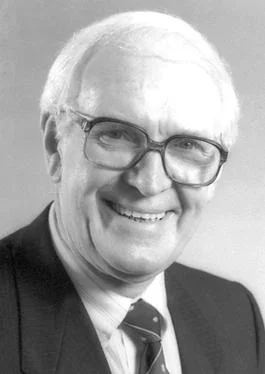
Scottish pharmacologist James Black was born, later winning the Nobel Prize for his groundbreaking work in drug development. His research revolutionized treatments for heart disease and ulcers.
Black’s development of beta-blockers and H2 receptor antagonists saved countless lives and established new approaches to drug design. His rational approach to pharmacology transformed the pharmaceutical industry and medical practice.
Notable Deaths on June 14
1986 – Jorge Luis Borges Dies

Argentine literary giant Jorge Luis Borges died after revolutionizing modern literature with his innovative short stories and essays. His labyrinthine narratives and philosophical depth influenced writers worldwide.
Borges’ exploration of infinity, time, and reality created entirely new possibilities for literary expression. His work transcended traditional boundaries between fiction and philosophy, establishing him as one of literature’s most innovative voices.
1946 – John Logie Baird Dies

Scottish inventor John Logie Baird died after pioneering the development of television technology. His mechanical television system laid the groundwork for modern broadcasting and transformed global communication.
Baird’s innovations included the first public demonstration of television and the first transatlantic television signal. His work established television as a dominant medium and changed how humanity shares information and entertainment.
1994 – Henry Mancini Dies

American composer Henry Mancini died after creating some of the most memorable film and television music of the 20th century. His sophisticated melodies and orchestrations elevated the art of film scoring.
Mancini’s compositions for “The Pink Panther,” “Breakfast at Tiffany’s,” and other films became cultural icons. His work earned multiple Grammy and Academy Awards and influenced generations of film composers.
1907 – William Le Baron Jenney Dies

American architect William Le Baron Jenney died after designing the Home Insurance Building, considered the first modern skyscraper. His innovative use of steel-frame construction revolutionized urban architecture.
Jenney’s engineering innovations made tall buildings safe and practical, launching the era of modern skyscrapers. His work transformed city skylines and established Chicago as a center of architectural innovation.
1949 – Albert II Dies
Albert II, the rhesus macaque who became the first mammal in space, died after his historic rocket flight. His sacrifice contributed crucial data to the development of human spaceflight programs.
Albert II’s successful journey to space and safe return demonstrated that mammals could survive space travel. His mission provided essential biological data that helped make human spaceflight possible and safe.
1995 – Rory Gallagher Dies

Irish blues guitarist Rory Gallagher died after a career that influenced countless musicians and helped bring Irish music to international audiences. His passionate performances and guitar skills earned worldwide recognition.
Gallagher’s dedication to the blues and his energetic live performances inspired a generation of guitarists. His music bridged traditional Irish folk music with American blues, creating a unique and influential sound.
Holidays and Observances on June 14
Flag Day (United States)
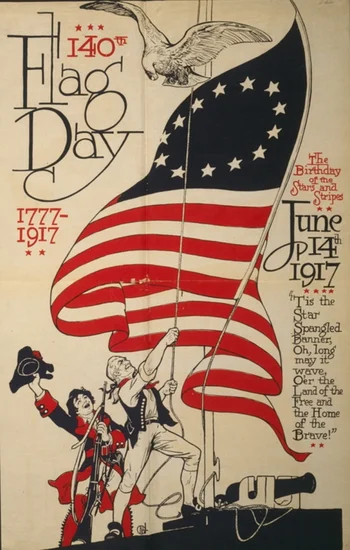
Americans celebrate Flag Day to honor the adoption of the Stars and Stripes as the national flag. The observance promotes patriotism and remembrance of American founding principles.
Flag Day ceremonies across the nation include flag retirement ceremonies, parades, and educational programs. The holiday reinforces national unity and respect for the symbols of American democracy.
World Blood Donor Day

The World Health Organization designated June 14 as World Blood Donor Day to raise awareness about the need for safe blood donations. The observance honors voluntary blood donors and promotes donation programs worldwide.
Blood donation campaigns on this day help address critical shortages in medical facilities globally. The observance emphasizes the life-saving impact of voluntary blood donation and community health responsibility.
Freedom Day (Malawi)
Malawi celebrates Freedom Day to commemorate the country’s independence and democratic achievements. The holiday honors the struggle for freedom and self-determination in southern Africa.
Freedom Day celebrations include cultural performances, political speeches, and community gatherings. The observance reinforces Malawian national identity and commitment to democratic values and human rights.
Liberation Day (Falkland Islands)

The Falkland Islands observe Liberation Day to commemorate the end of Argentine occupation in 1982. The holiday celebrates the restoration of British sovereignty and the islands’ right to self-determination.
Liberation Day ceremonies honor the British forces who fought to liberate the islands and remember those who died in the conflict. The observance reinforces the islands’ connection to Britain and their commitment to democracy.
Baltic Freedom Day (United States)
The United States observes Baltic Freedom Day to commemorate the victims of Soviet deportations from Estonia, Latvia, and Lithuania. The observance honors the struggle for Baltic independence and human rights.
The day raises awareness about Soviet-era oppression and celebrates the eventual restoration of Baltic independence. American observances strengthen ties between the United States and Baltic nations while promoting human rights awareness.
